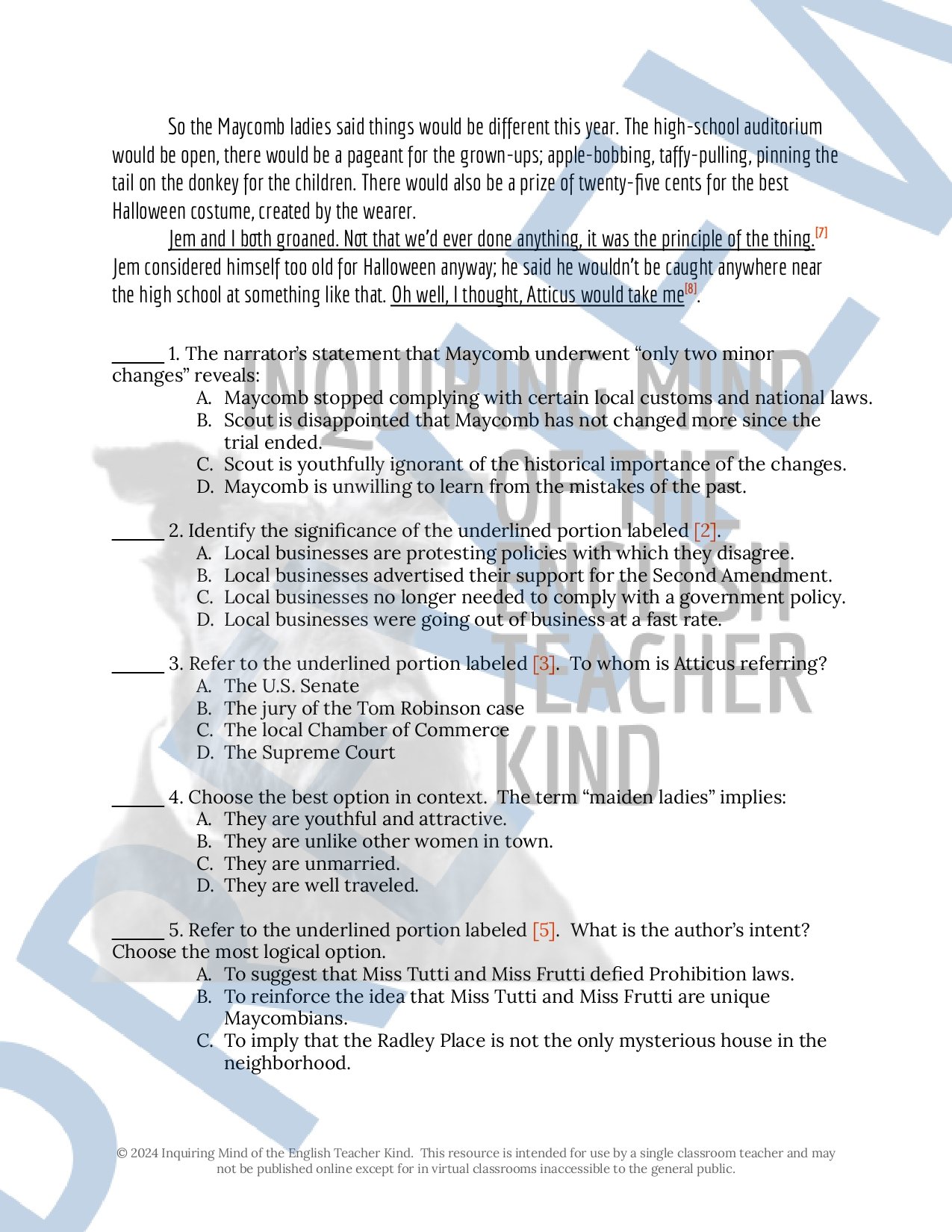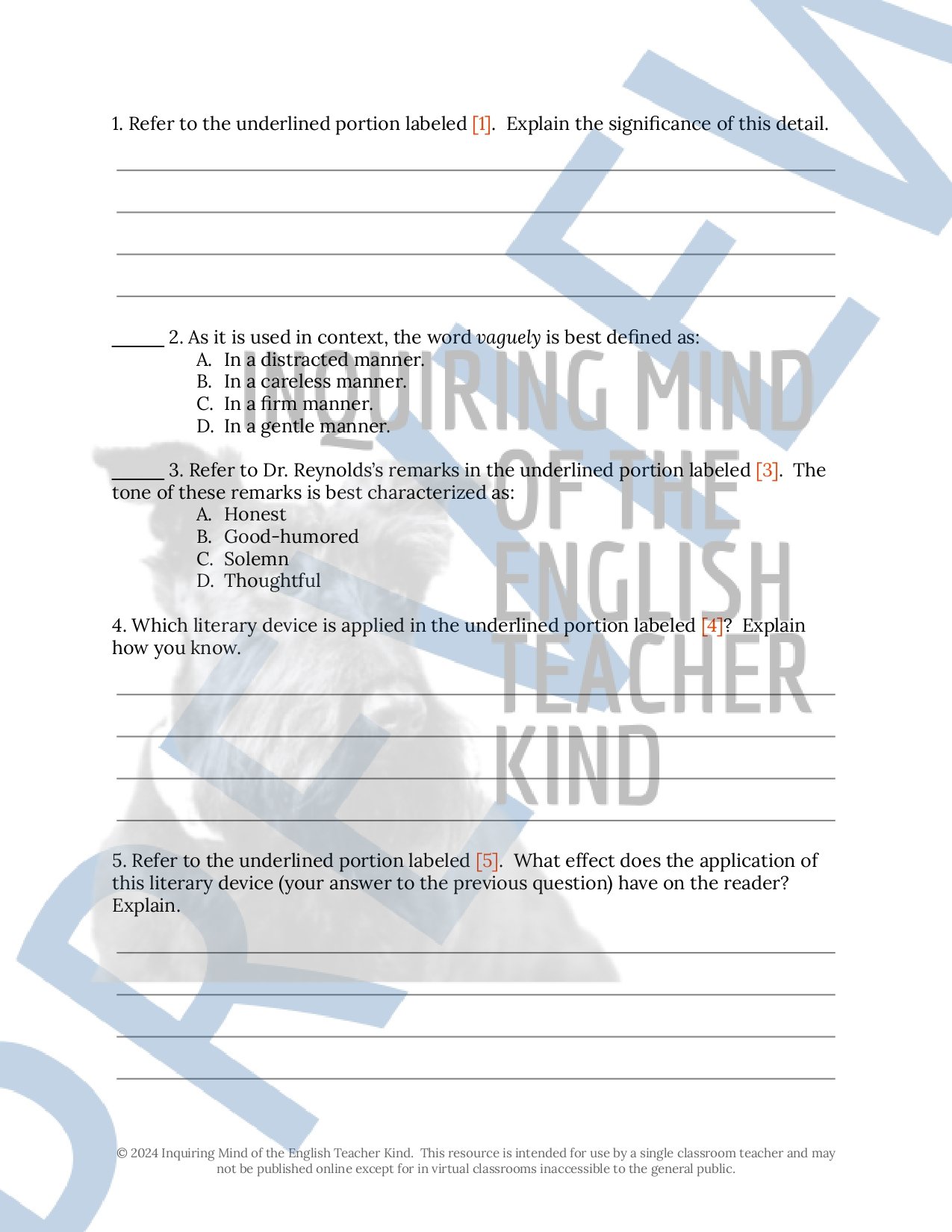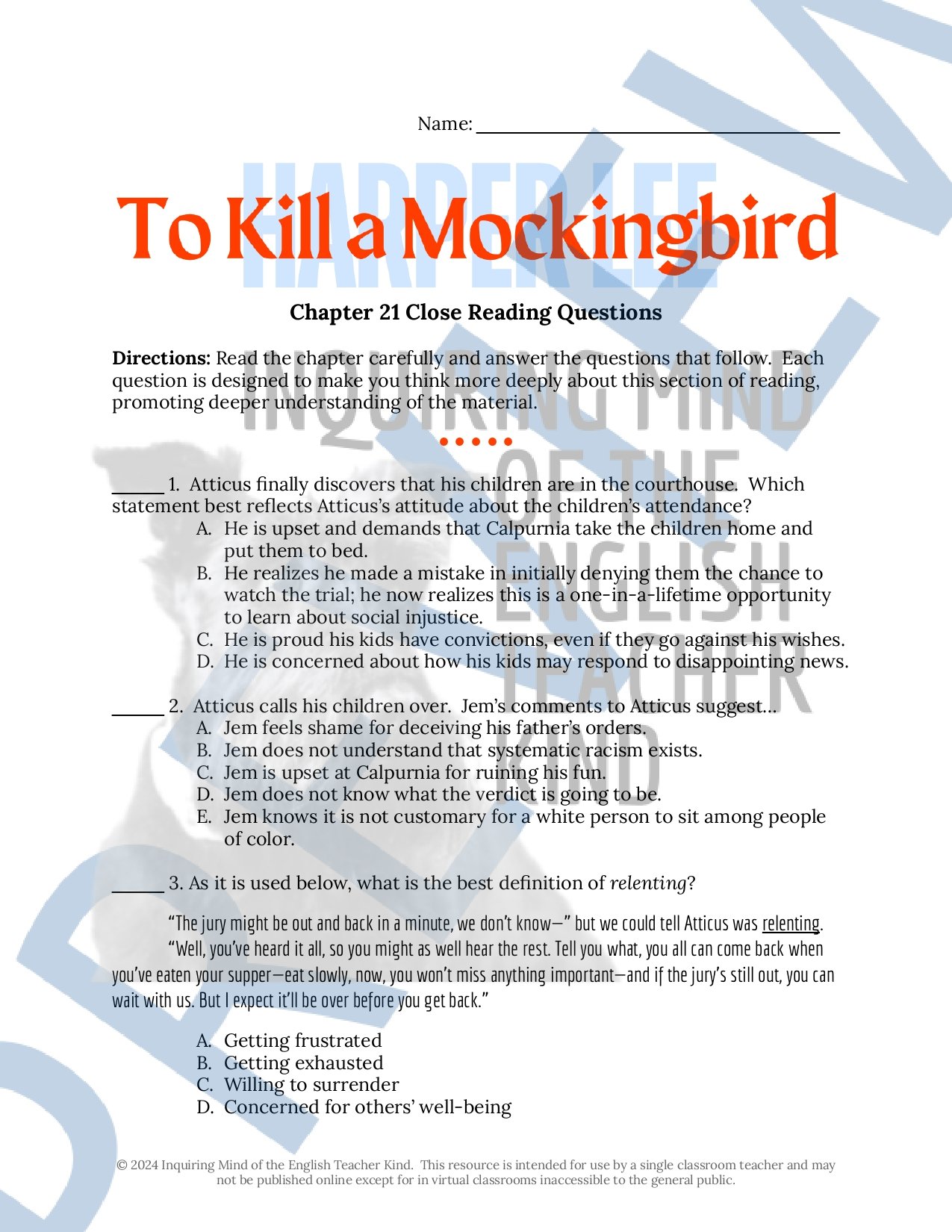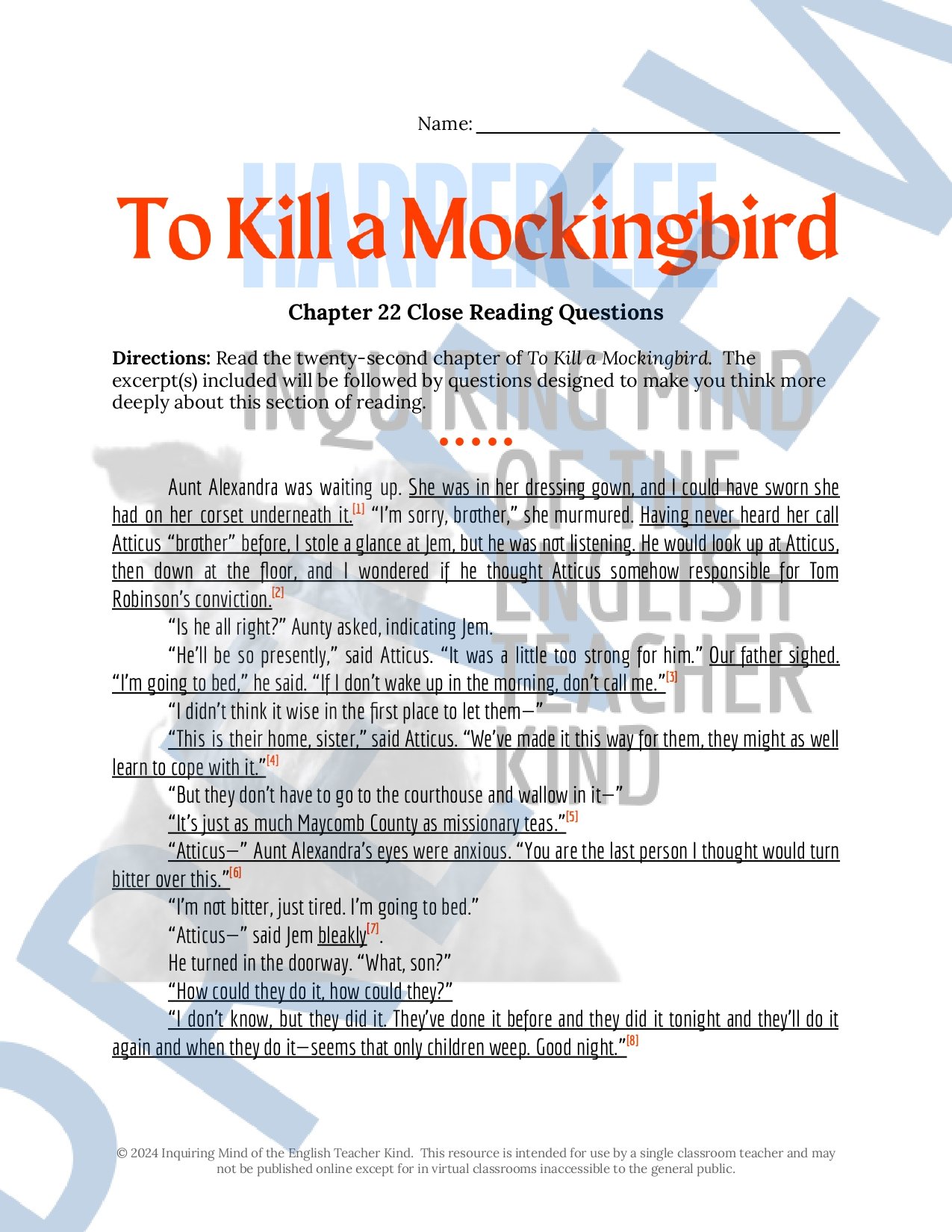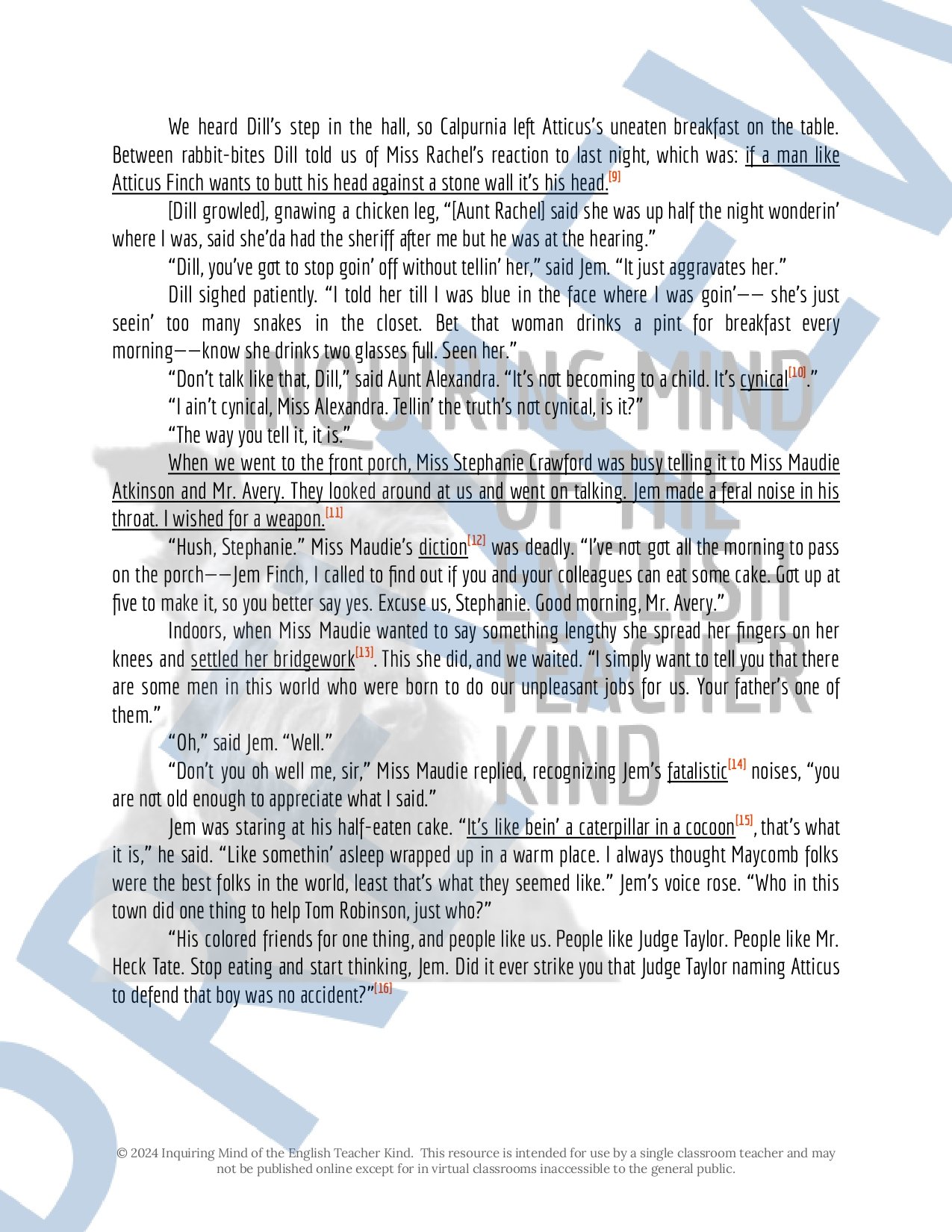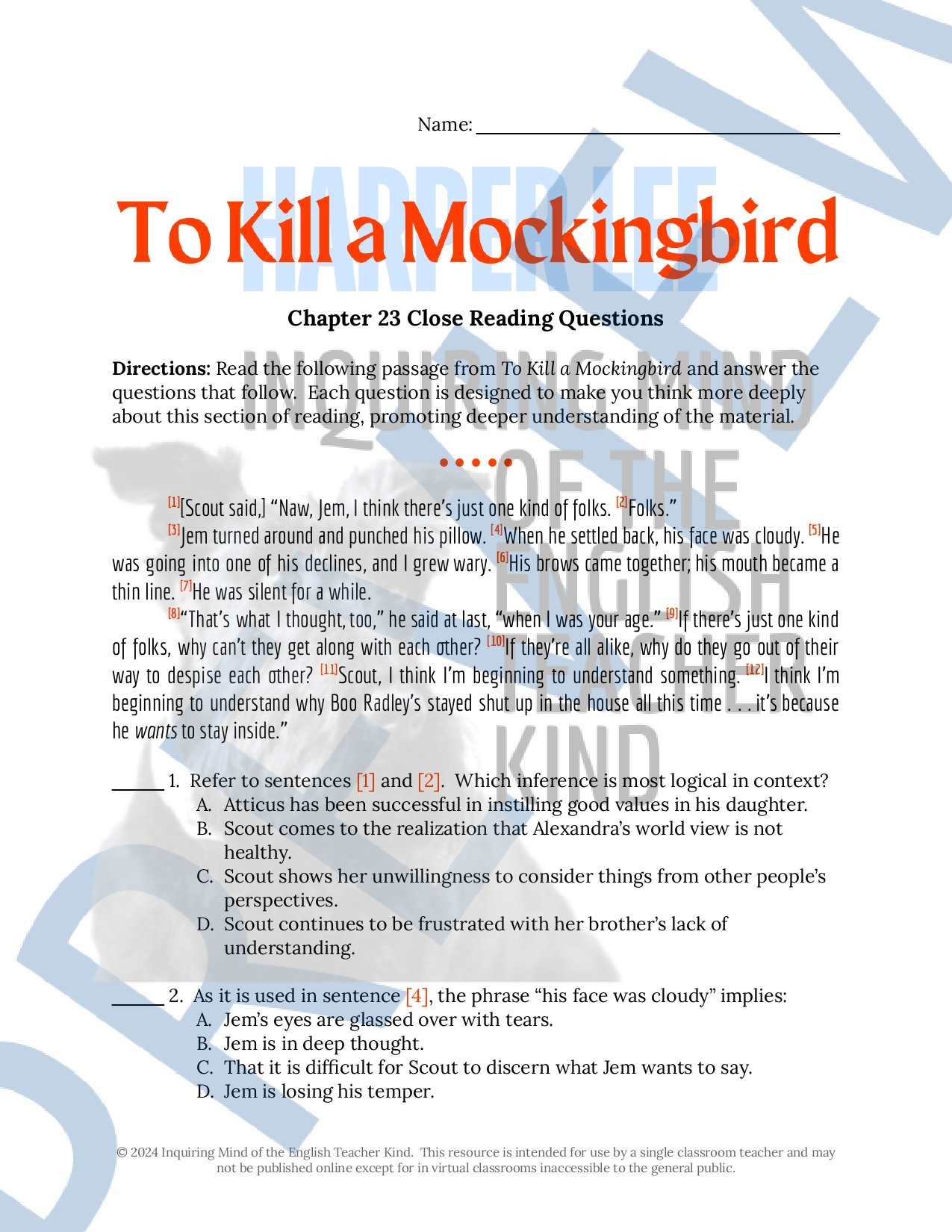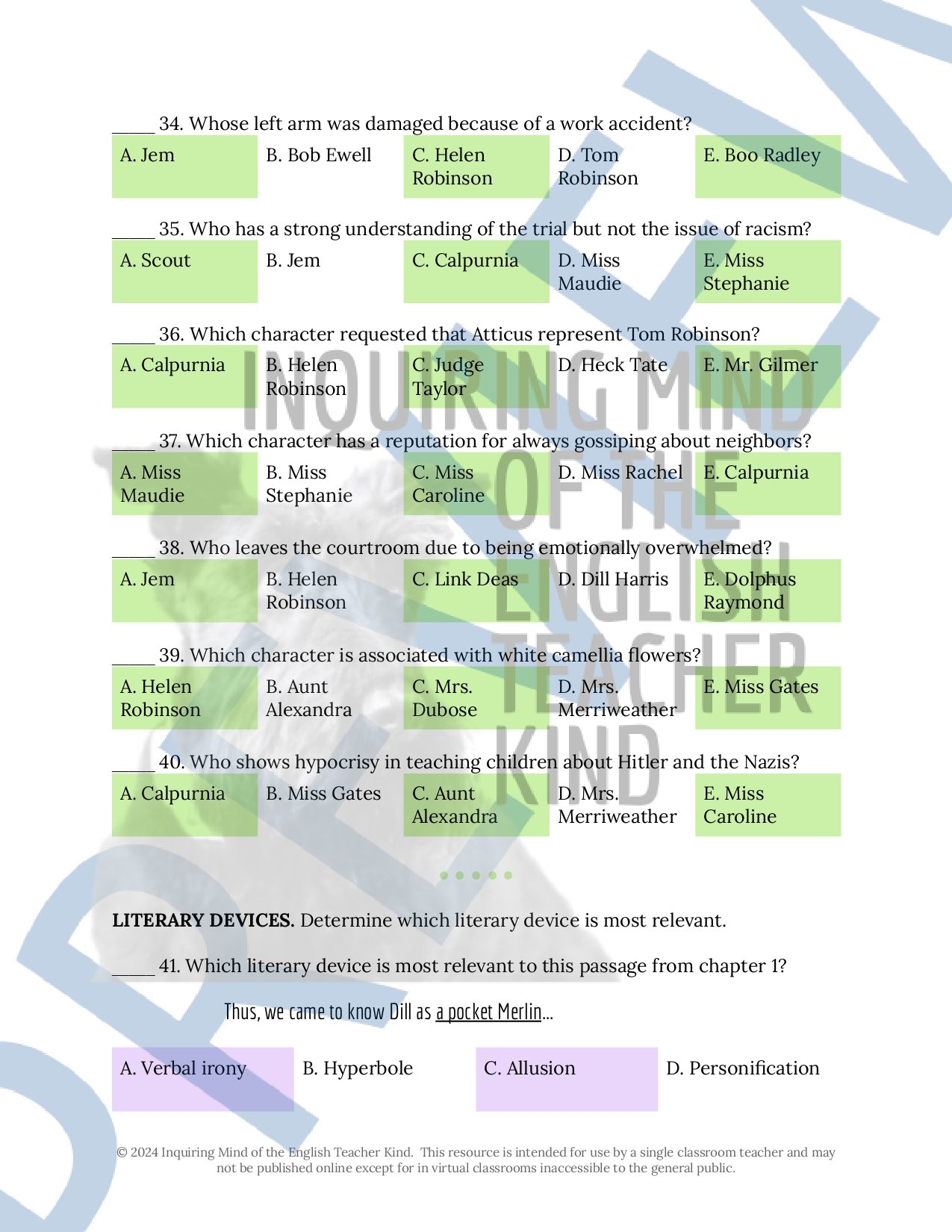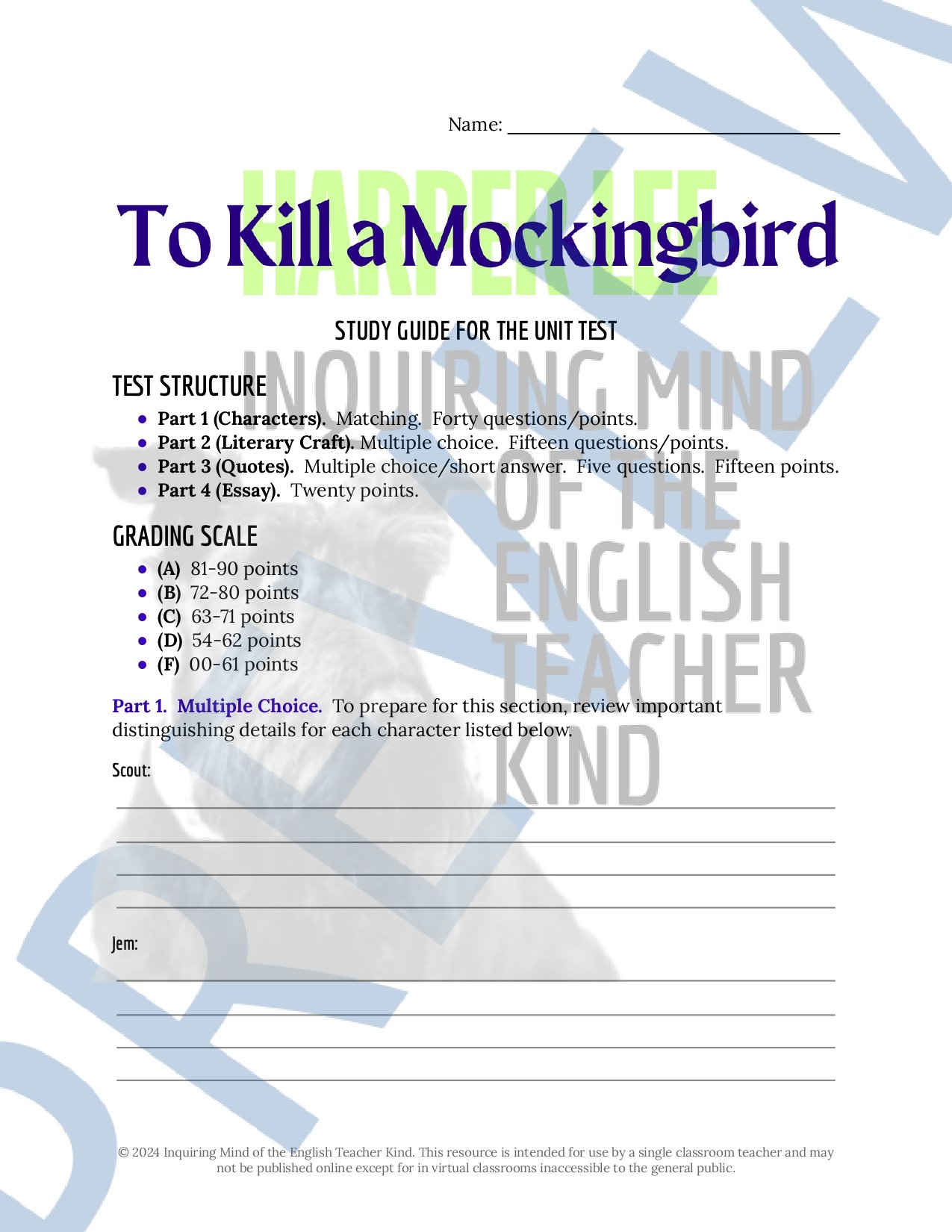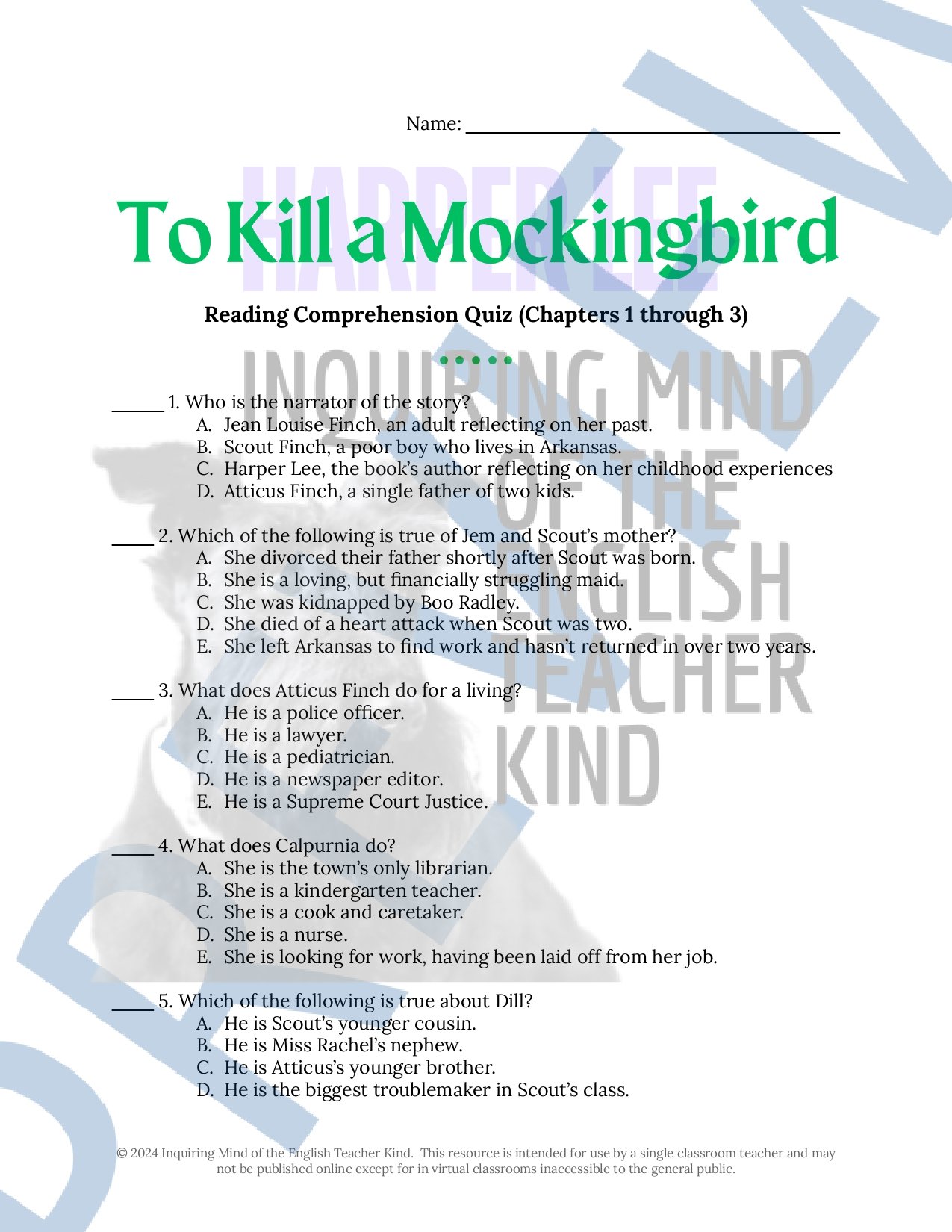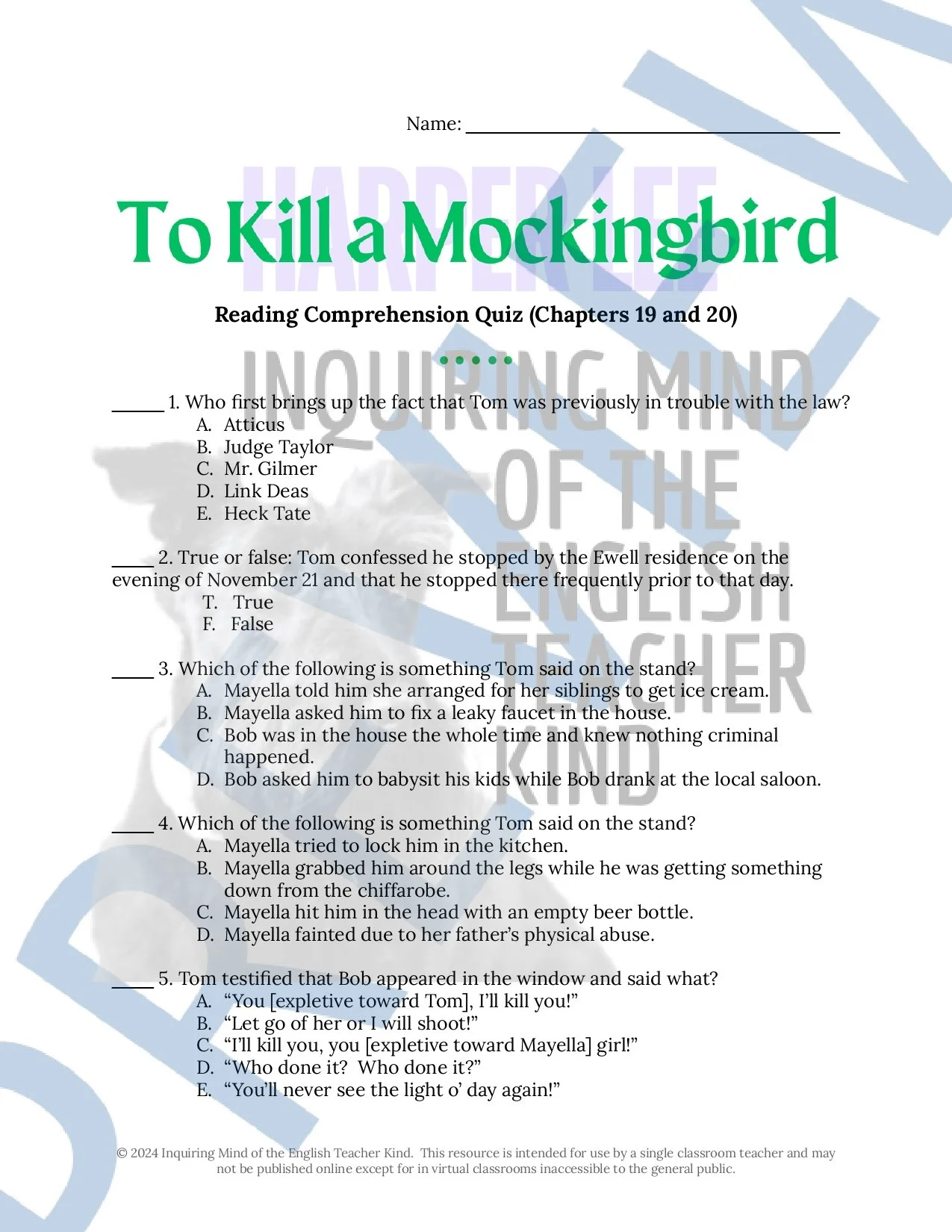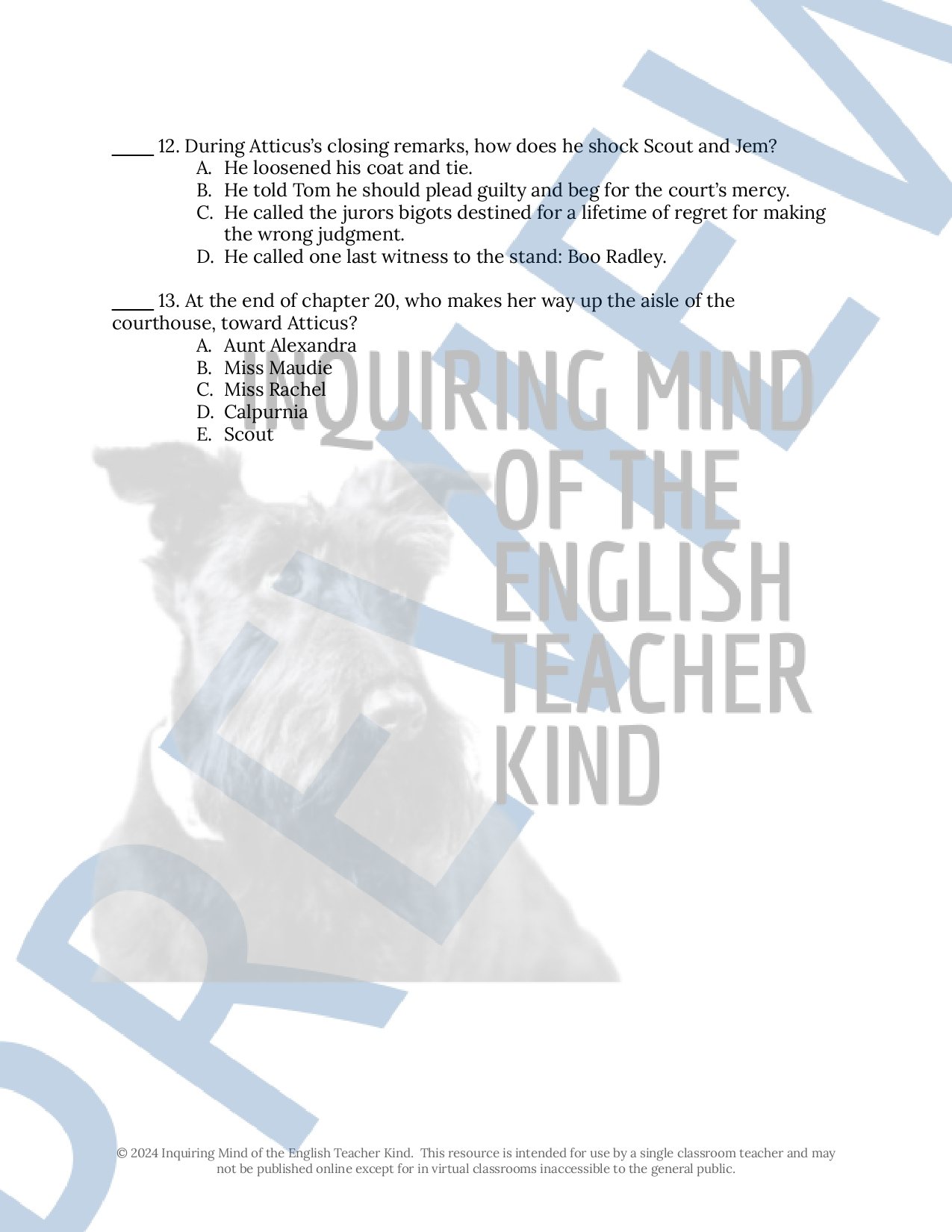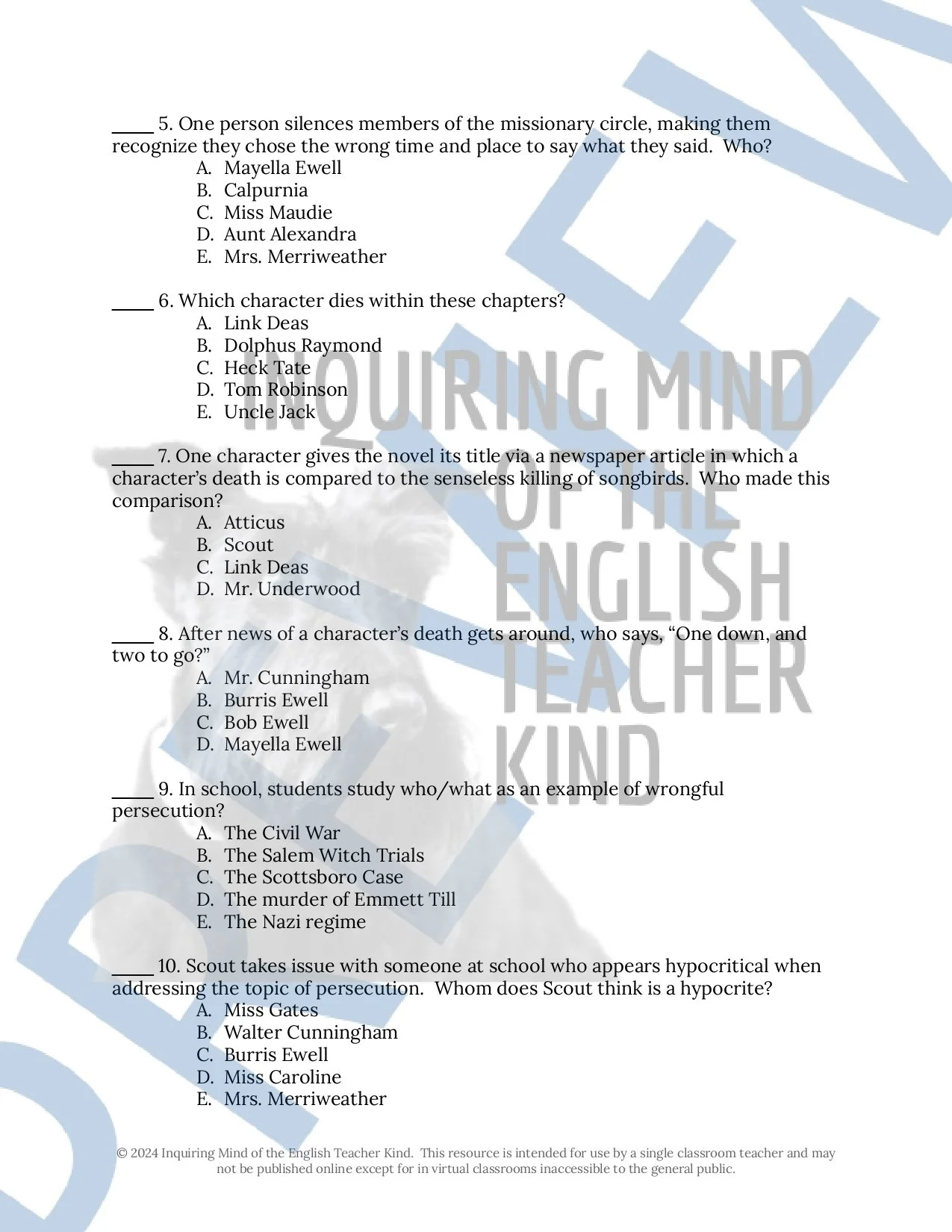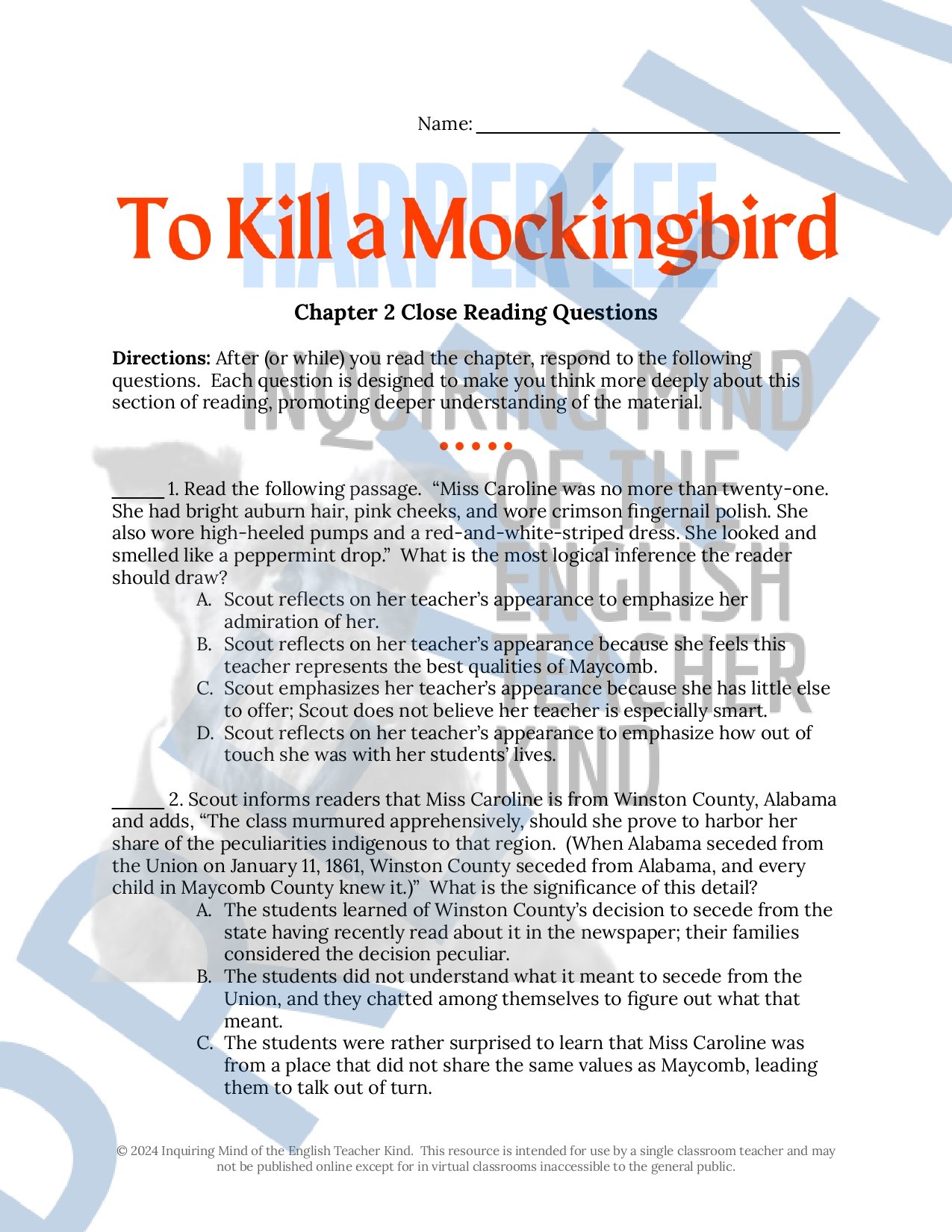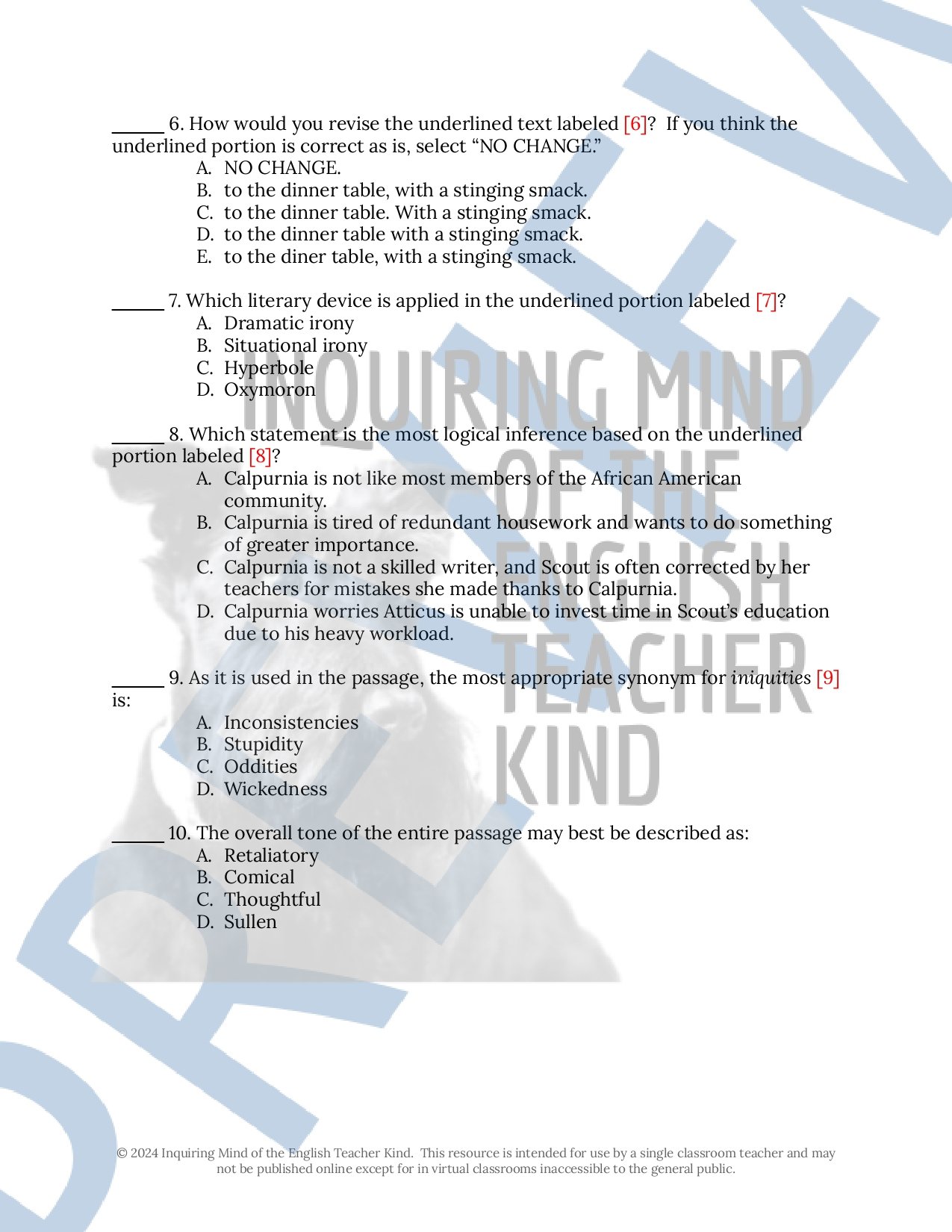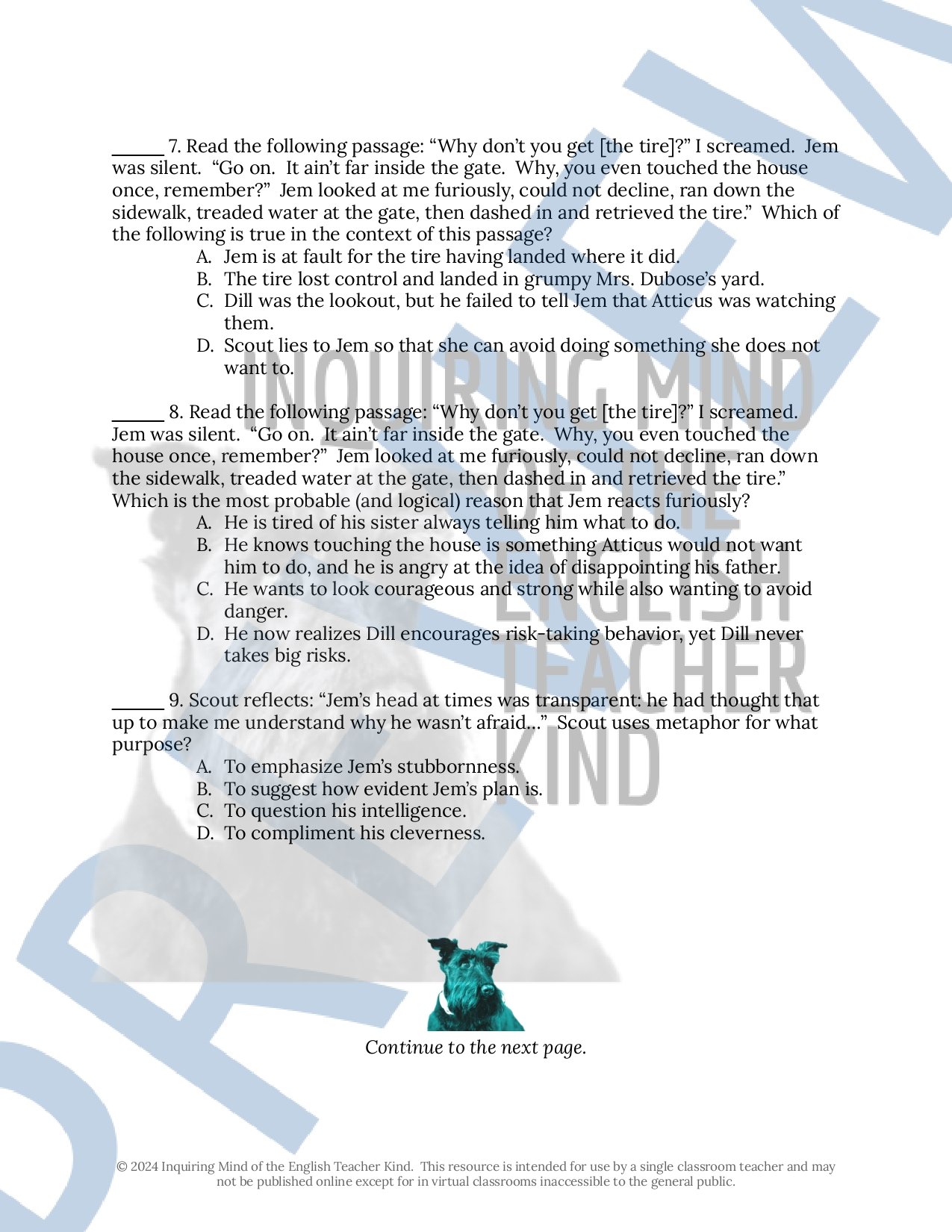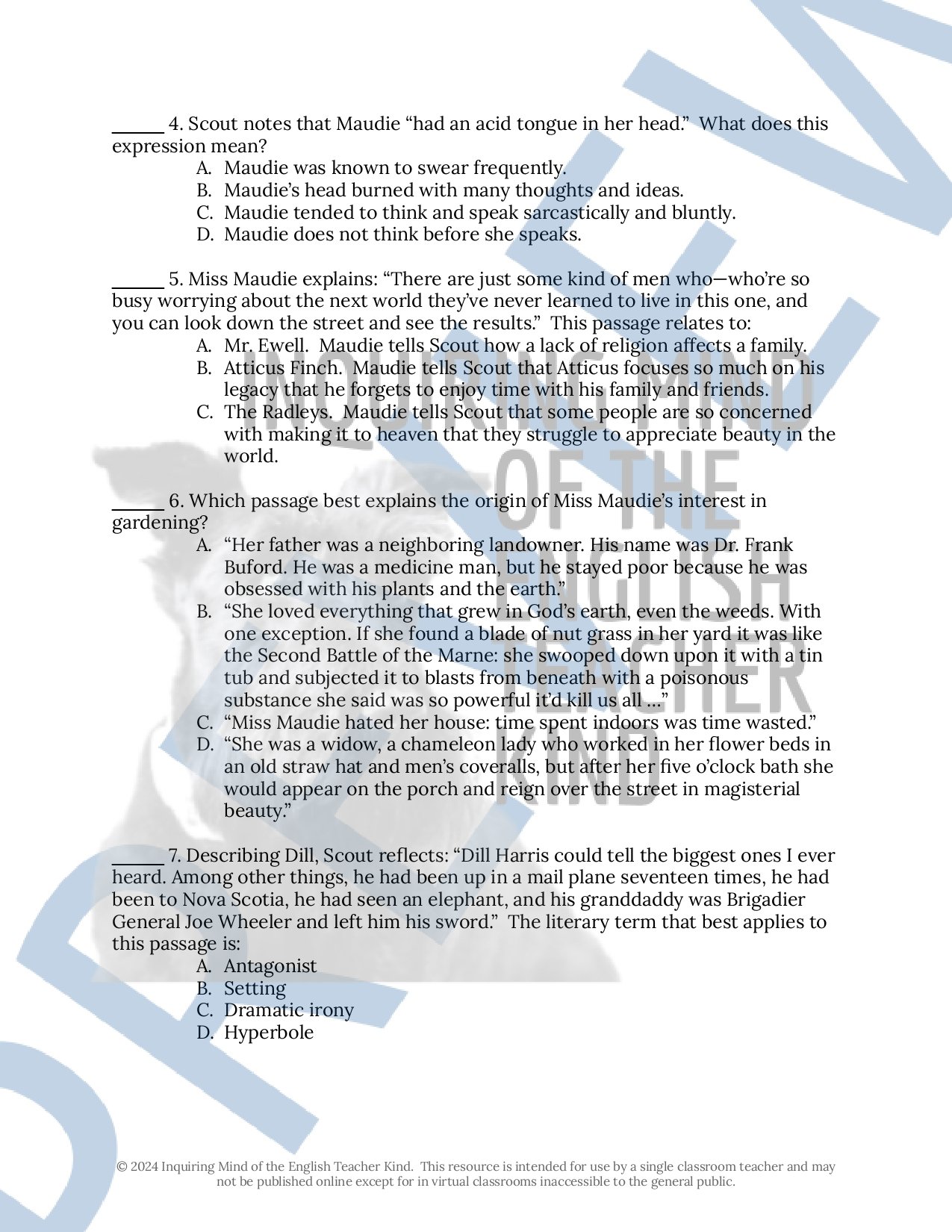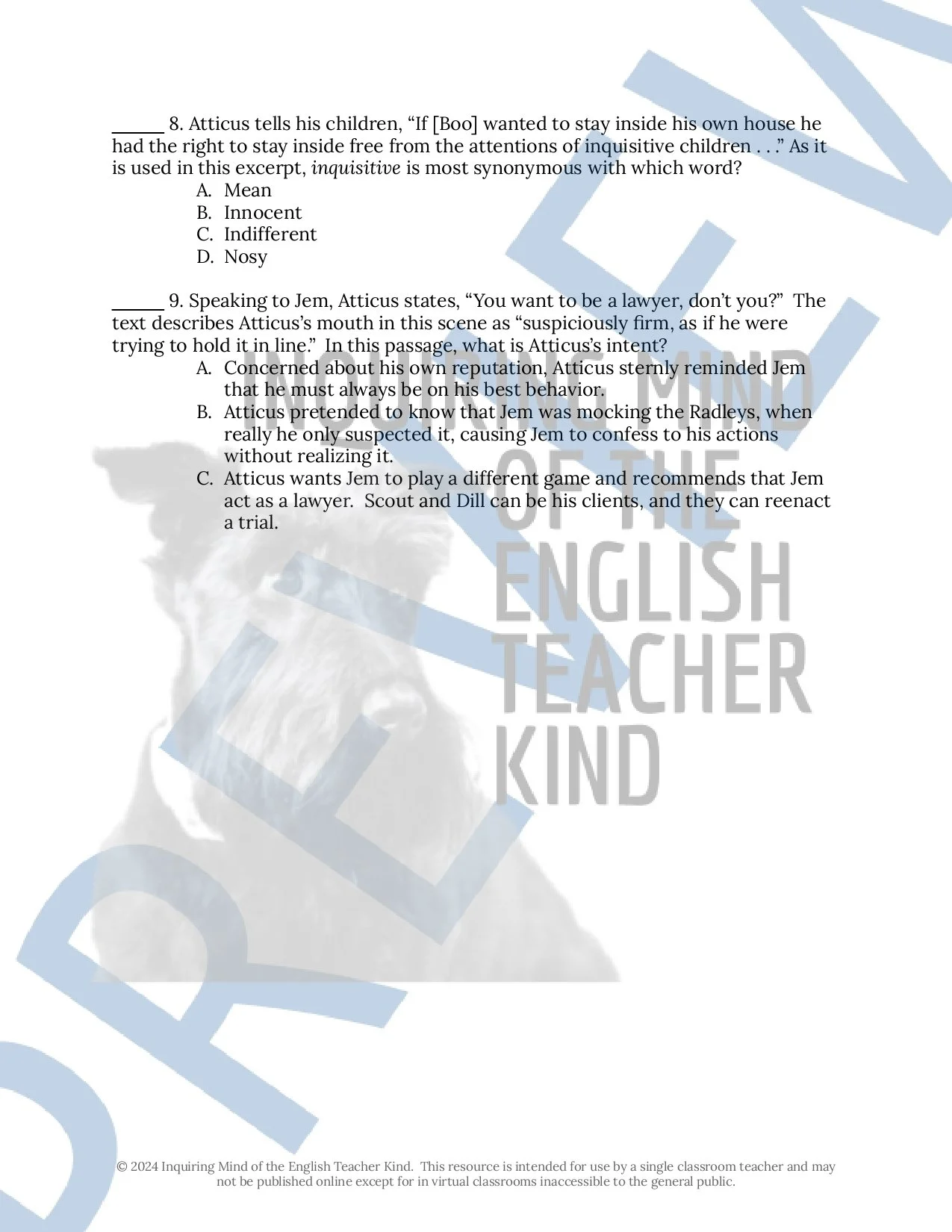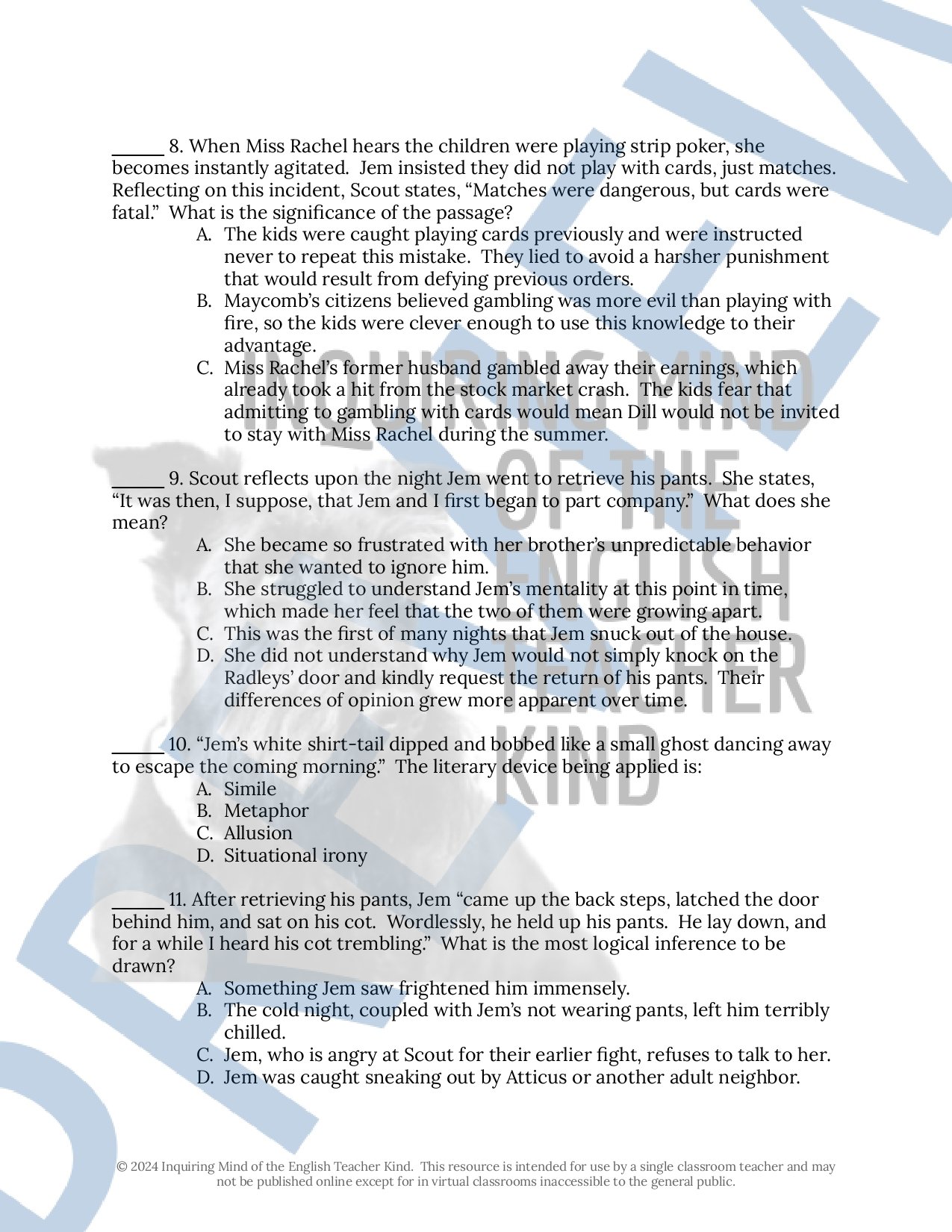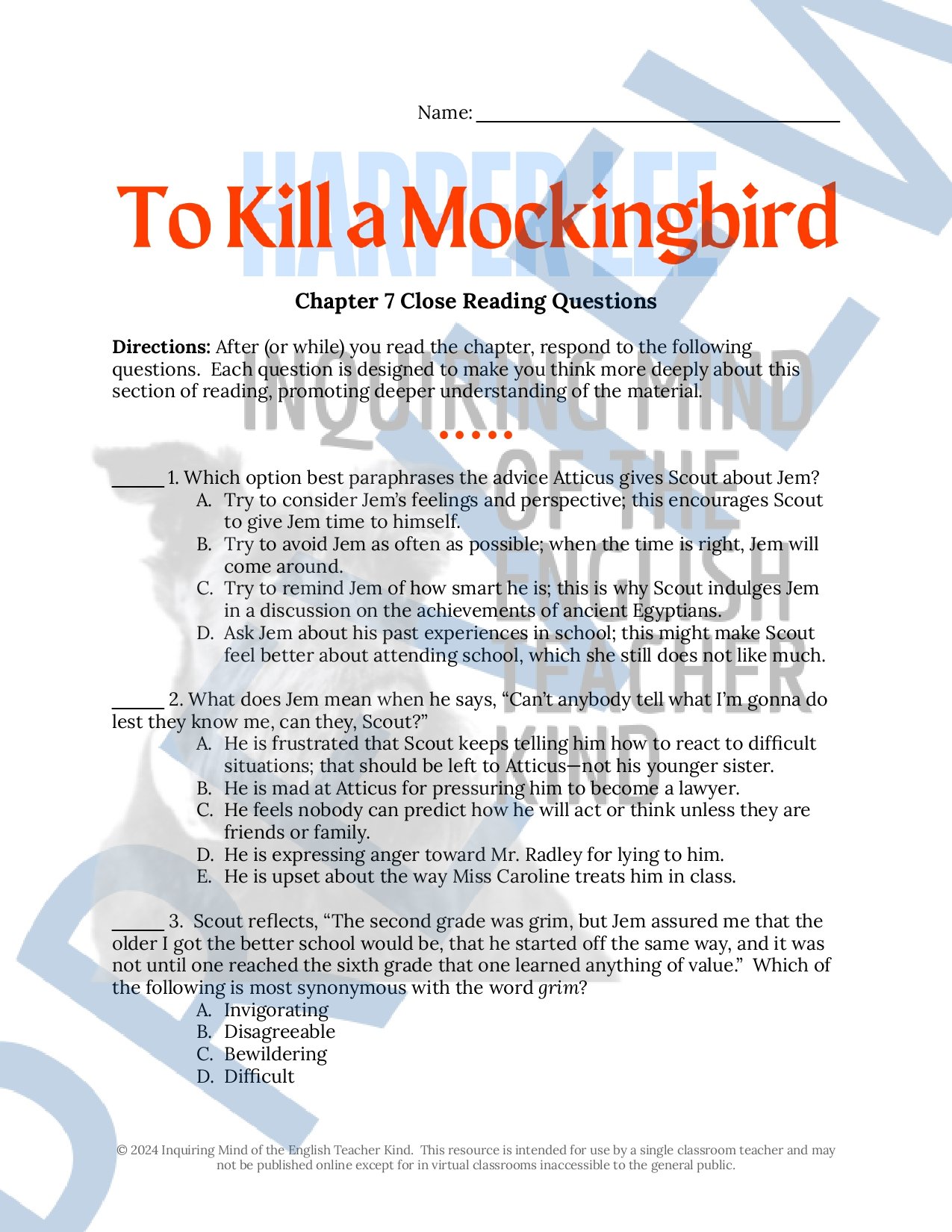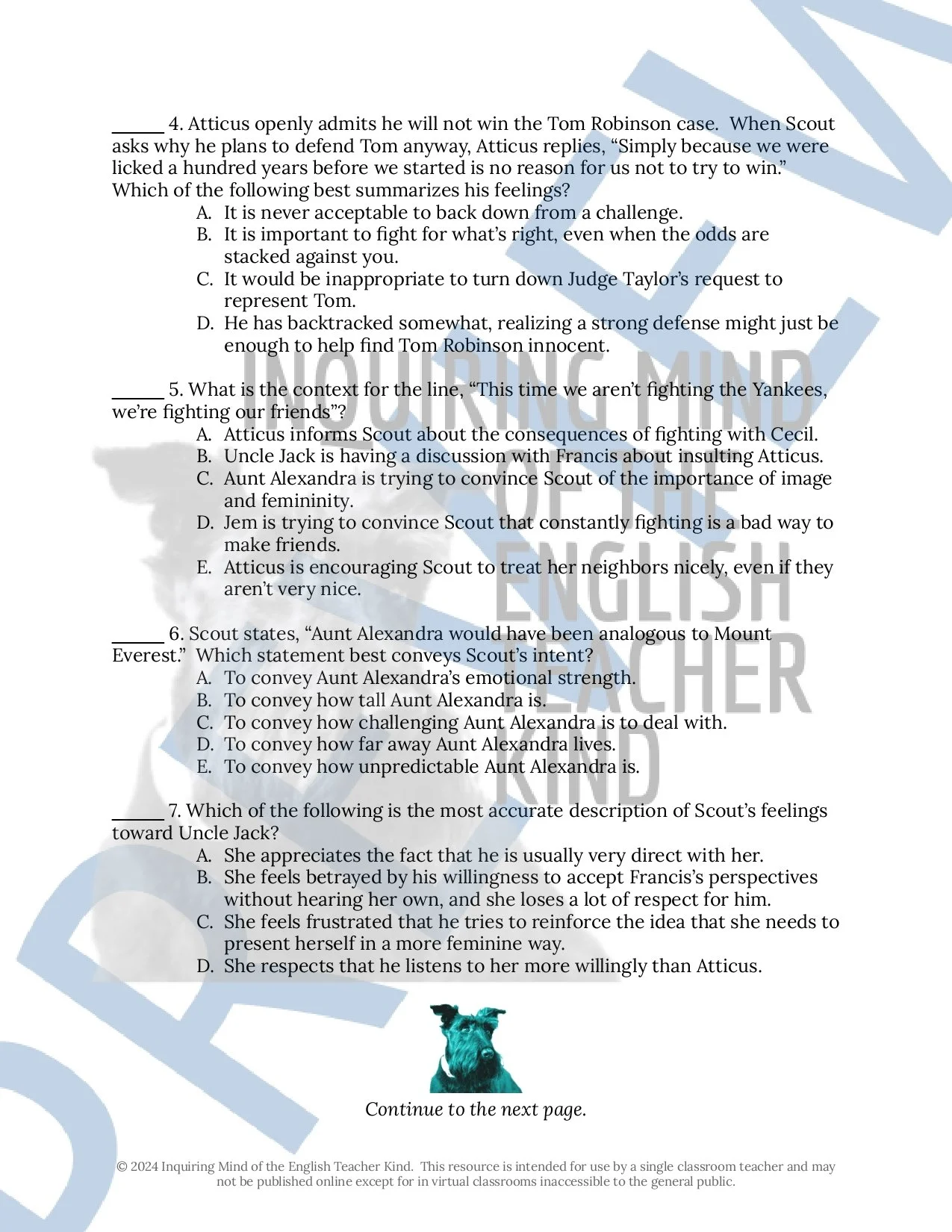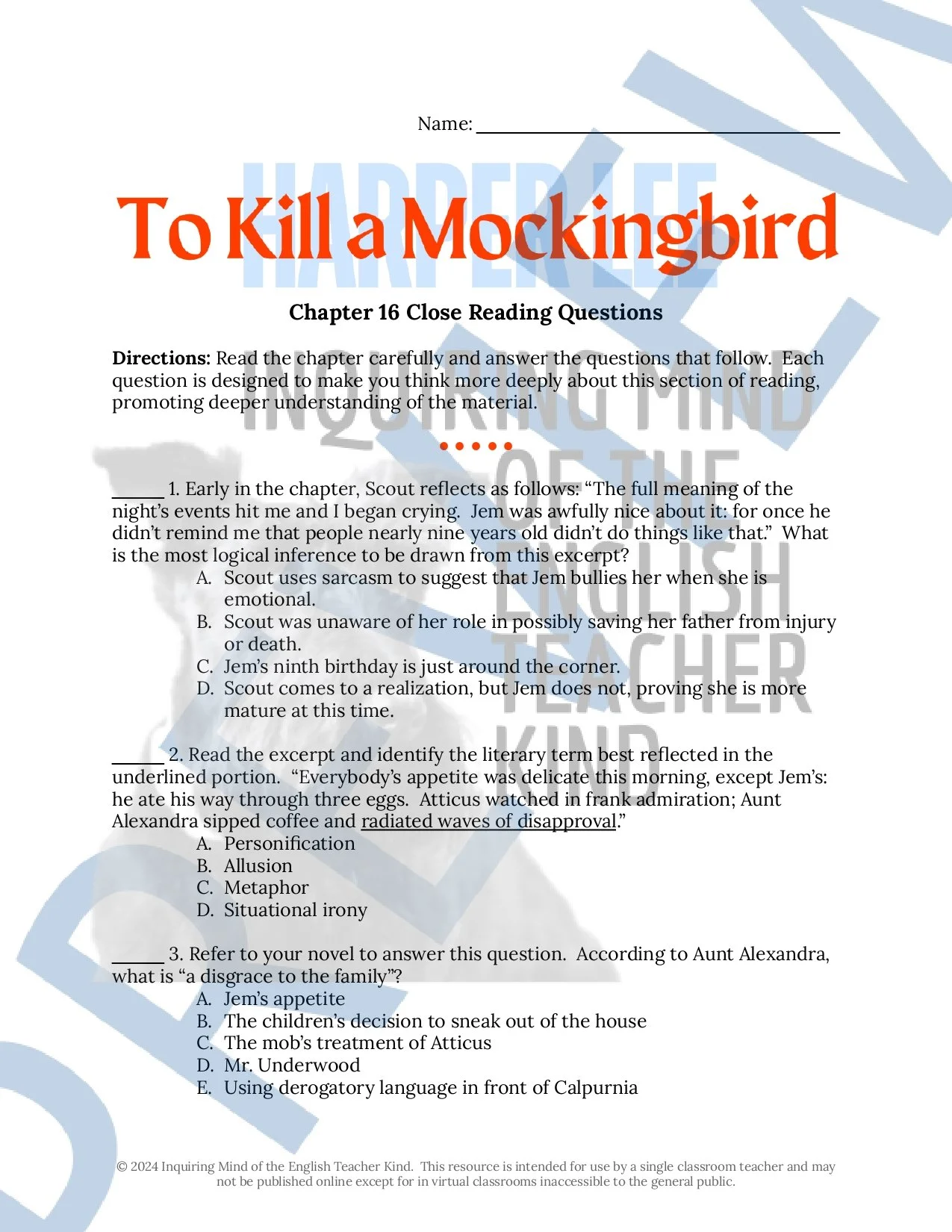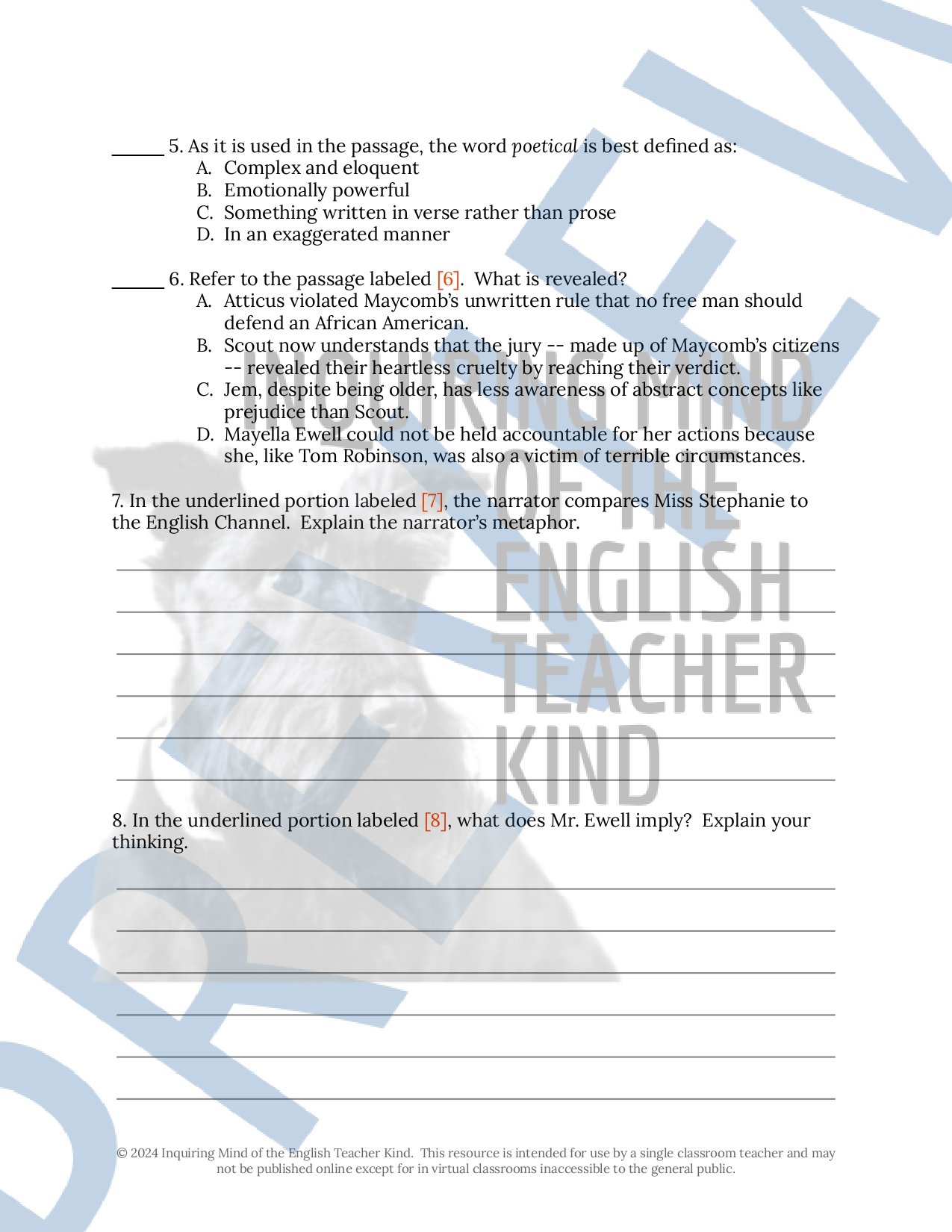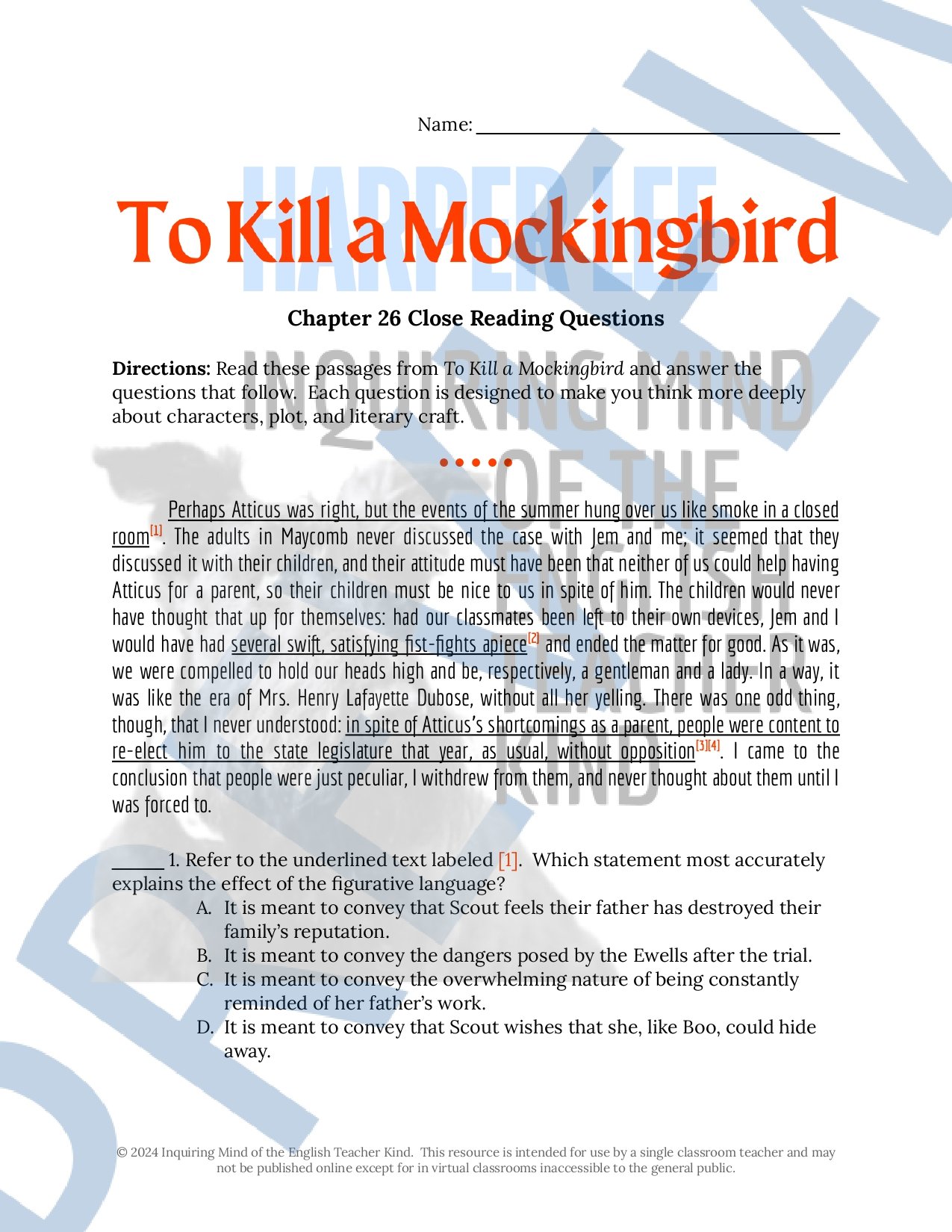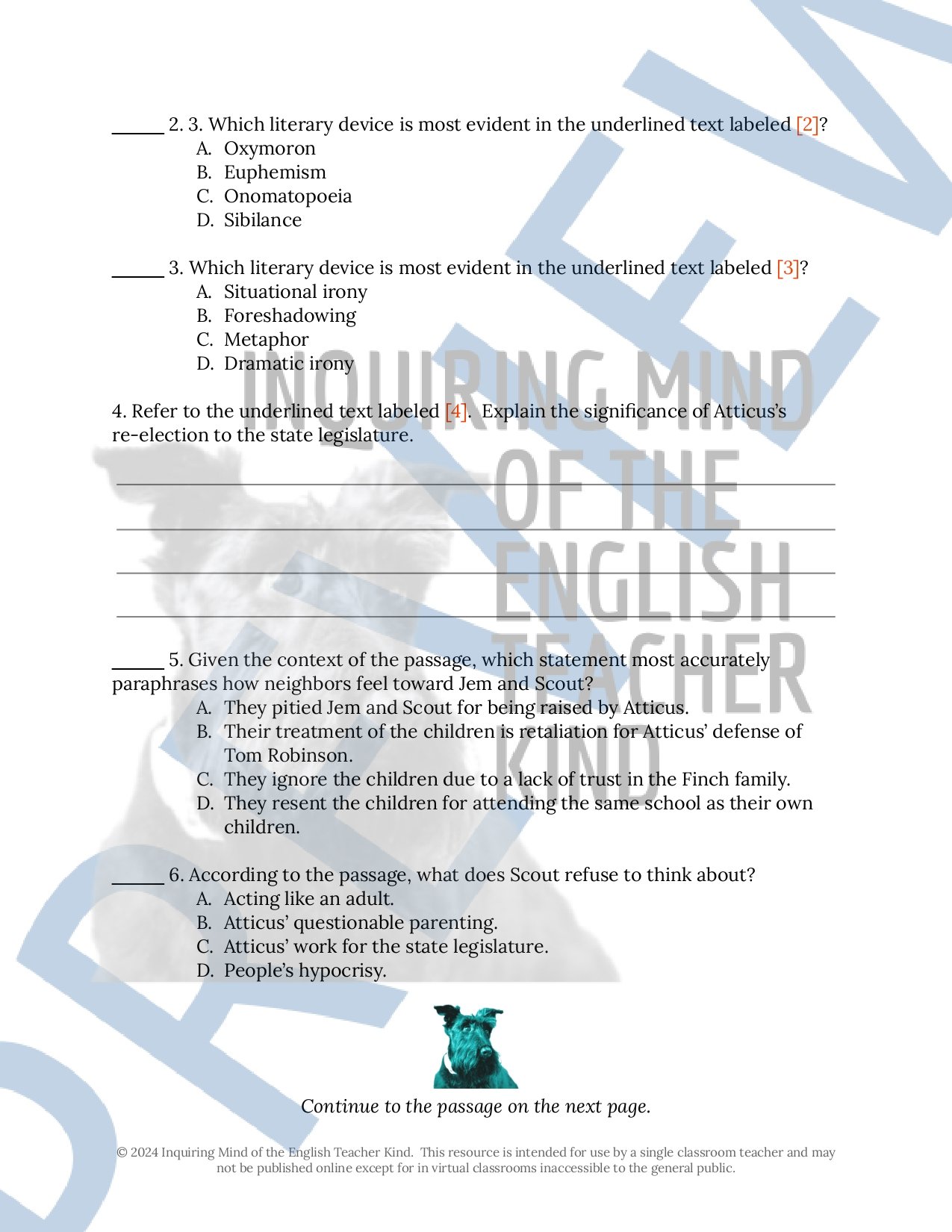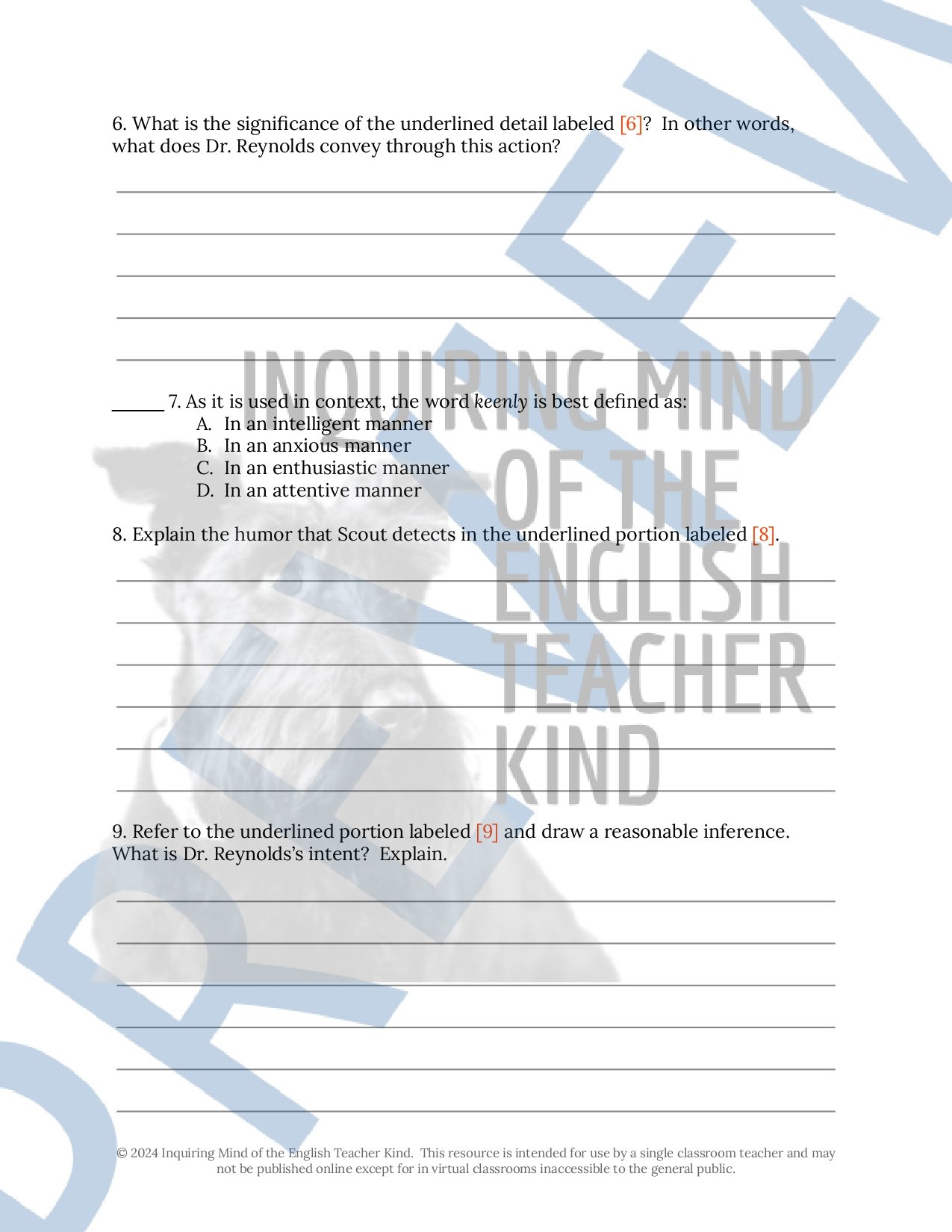 Image 1 of 20
Image 1 of 20

 Image 2 of 20
Image 2 of 20

 Image 3 of 20
Image 3 of 20

 Image 4 of 20
Image 4 of 20

 Image 5 of 20
Image 5 of 20

 Image 6 of 20
Image 6 of 20

 Image 7 of 20
Image 7 of 20

 Image 8 of 20
Image 8 of 20

 Image 9 of 20
Image 9 of 20

 Image 10 of 20
Image 10 of 20

 Image 11 of 20
Image 11 of 20

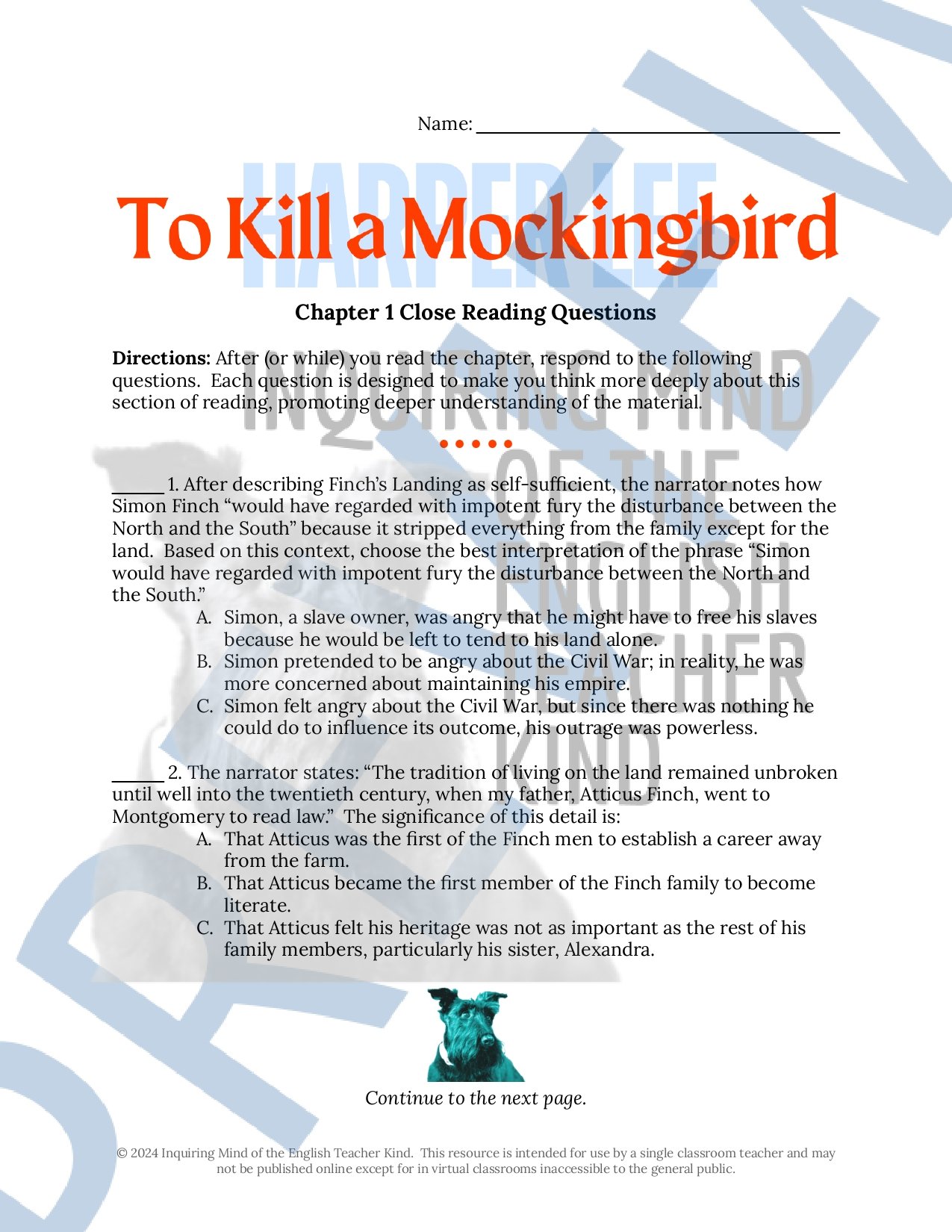 Image 12 of 20
Image 12 of 20

 Image 13 of 20
Image 13 of 20

 Image 14 of 20
Image 14 of 20

 Image 15 of 20
Image 15 of 20

 Image 16 of 20
Image 16 of 20

 Image 17 of 20
Image 17 of 20

 Image 18 of 20
Image 18 of 20

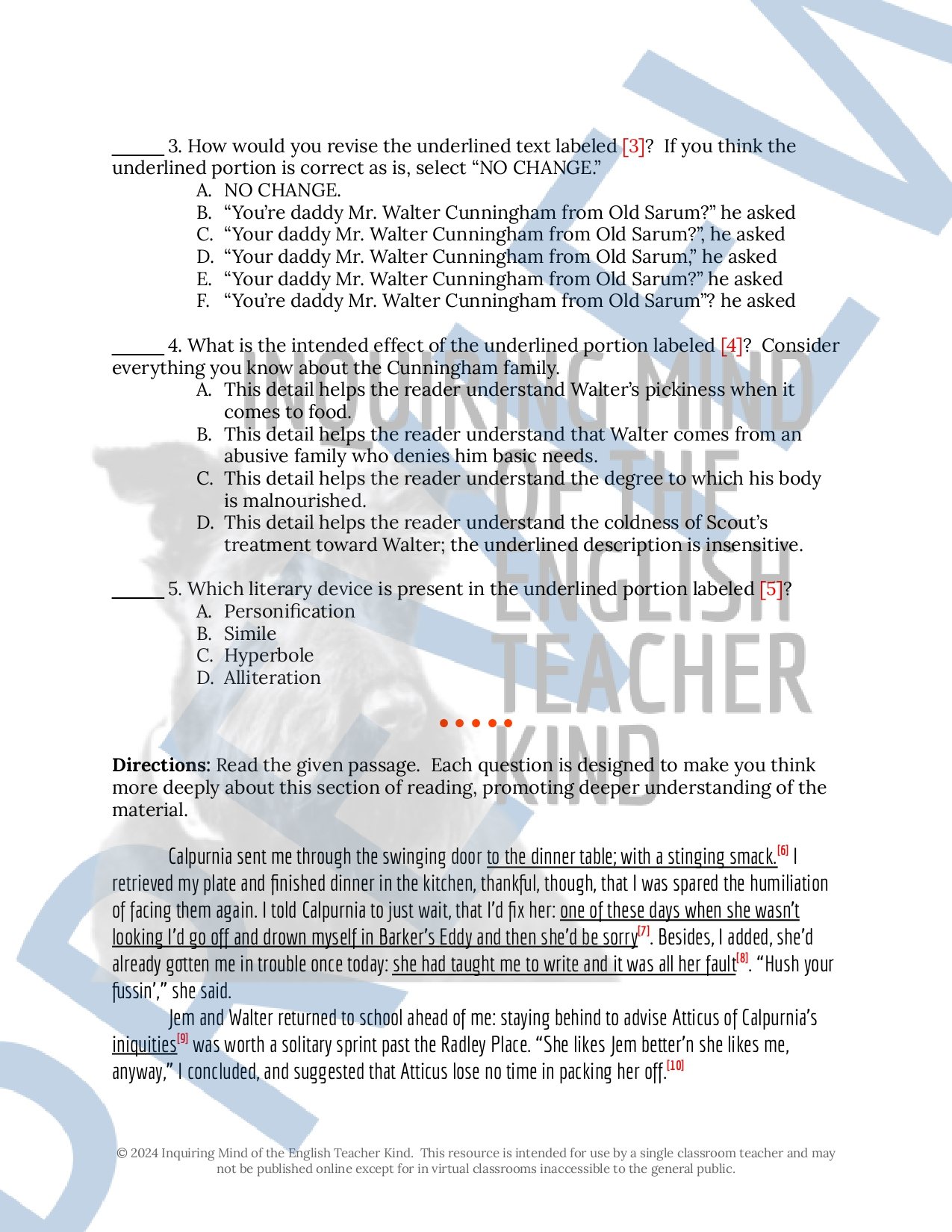 Image 19 of 20
Image 19 of 20

 Image 20 of 20
Image 20 of 20





















To Kill a Mockingbird Chapters 1-3 Quizzes, Inference Worksheets, and Vocabulary Games
Evaluate reading comprehension, support vocabulary development, and sharpen critical thinking and literary craft analysis skills with these activities and assessments covering chapters 1, 2, and 3 of To Kill a Mockingbird by Harper Lee. Two plot-based quizzes, three close reading inference worksheets, three vocabulary activities, and answer keys are included. Materials are delivered in editable Word Document and printable PDF formats. (Alternatively, a Google Drive bundle option is available.) By engaging with these materials, students will:
Read for literal comprehension
Consult reference materials to learn and verify word meanings as needed
Discern the most proper application of words as they are used in sentences
Infer the intended effects of the author's word choices and narrative techniques
Choose the most appropriate synonym to replace a word or phrase without changing the excerpt’s fundamental meaning
Demonstrate knowledge of comma and punctuation rules, especially as they apply to writing dialogue
Determine the greater significance of given details
Describe tone in context
Examine how complex characters think, behave, interact, and develop
Reflect on Miss Caroline's relationship to the town of Maycomb
Apply knowledge of literary devices including personification, hyperbole, allusion, alliteration, oxymoron, dramatic irony, and situational irony
Come to class better prepared to discuss works of fiction
Instructional materials are available for a variety of novels:
Evaluate reading comprehension, support vocabulary development, and sharpen critical thinking and literary craft analysis skills with these activities and assessments covering chapters 1, 2, and 3 of To Kill a Mockingbird by Harper Lee. Two plot-based quizzes, three close reading inference worksheets, three vocabulary activities, and answer keys are included. Materials are delivered in editable Word Document and printable PDF formats. (Alternatively, a Google Drive bundle option is available.) By engaging with these materials, students will:
Read for literal comprehension
Consult reference materials to learn and verify word meanings as needed
Discern the most proper application of words as they are used in sentences
Infer the intended effects of the author's word choices and narrative techniques
Choose the most appropriate synonym to replace a word or phrase without changing the excerpt’s fundamental meaning
Demonstrate knowledge of comma and punctuation rules, especially as they apply to writing dialogue
Determine the greater significance of given details
Describe tone in context
Examine how complex characters think, behave, interact, and develop
Reflect on Miss Caroline's relationship to the town of Maycomb
Apply knowledge of literary devices including personification, hyperbole, allusion, alliteration, oxymoron, dramatic irony, and situational irony
Come to class better prepared to discuss works of fiction
Instructional materials are available for a variety of novels:


Preview this resource:
Evaluate reading comprehension, support vocabulary development, and sharpen critical thinking and literary craft analysis skills with these activities and assessments covering chapters 1, 2, and 3 of To Kill a Mockingbird by Harper Lee. Two plot-based quizzes, three close reading inference worksheets, three vocabulary activities, and answer keys are included.













